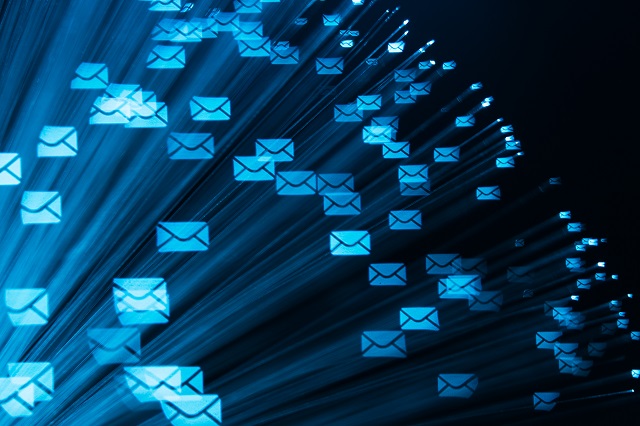
Credit: MirageC / Getty Images
*This piece was originally published on March 19th, 2021.*
Constantly checking your email might feel like textbook responsible work behavior but, according to Cal Newport — a professor of computer science at Georgetown University and author of A World Without Email — it can actually wreak havoc on productivity. Newport argues that our out-of-control inboxes are keeping us from being the thinkers, workers, and problem solvers we could be if email ran our lives less.
Three Takeaways:
- Repeatedly “context shifting” during the workday - moving from the work you're doing, to tending to your email inbox, then back again — “is like poison to clear thinking,” according to Newport. The cognitive disruption this causes distracts from “real work,” inhibits deep thinking, and hurts ingenuity.
- Newport hypothesizes that non-industrial productivity is stagnating because of our “increasingly hyperactive, hive mind mode of working.” As email has gobbled up more of the typical 9-to-5 day, workers have pushed themselves beyond expected hours — doing deeply-focused work after the kids go to bed or in the early morning.
- Our socially wired, “Paleolithic” brains don’t handle mounting social obligations well. The stress that managing our inbox induces originates from the fact that it feels like we’re ignoring “a tribe member tapping you on the shoulder” - a person who might be less inclined to share food with you during the next famine if you aren’t helpful, Newport explains.
Further Reading:
- Newport discusses a seminal 1927 experiment that measured the cognitive cost of switching between multiple tasks. For an update on nearly a century of follow-up research on task-switching, check out this Psychology Today article.
- The “inbox zero” strategy - immediately archiving emails after they’ve been dealt with - has been in vogue recently. But its creator, Merlin Mann, describes in Wired how taking the strategy literally has been a massive waste of time for many.
- In this New Yorker article, Cal Newport argues the way we communicate during work is flat out inhumane, leading workers to more misery and less productivity.
- Slack has become the de-facto tool for much workplace communication, especially during the pandemic. In this article ‘How Slack Has Ruined Work,’ one neuroscientist argues that the platform encourages us to be constantly distracted.
Listener Responses:
Our conversation with Cal Newport apparently struck a chord with a whole bunch of you, because we got some really great feedback. Here's some of what we heard:
- "There was one executive... he used to travel all over the world, all different time zones. And he used to send emails at all different times... his assistant was expected to answer his emails within 30 minutes at most." - Julio, IT worker
- "So the email made stuff quicker, but it was also a record, so if you had a dispute you could pull it up, you could show it to people, you could verify details." - Carol, sales
- "They really take away from overall clinical time and interacting with patients in a meaningful way." - Ethan, orthopedic surgeon
- "Sometimes there's a real expectation in my office to respond within ten minutes. And that's really not sustainable." - Steve, government worker
(And yes, if you were wondering, the responses mostly came via email.)

